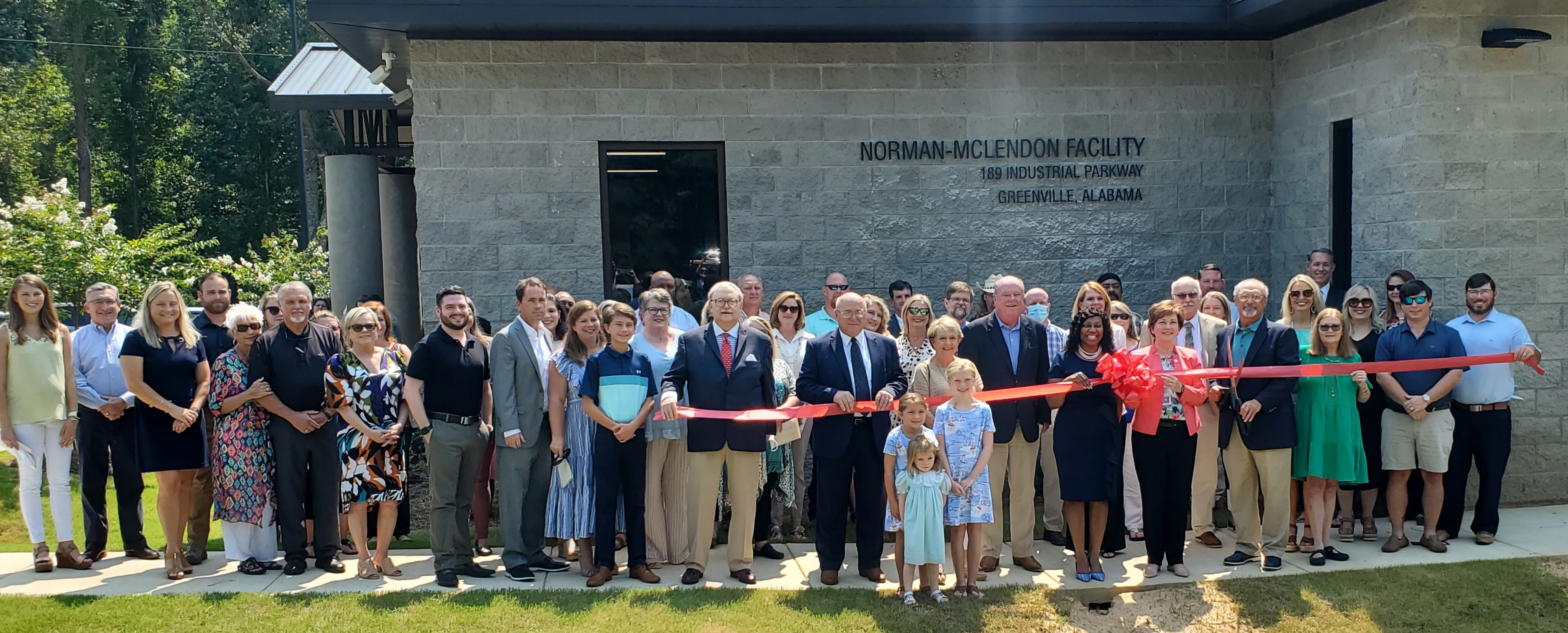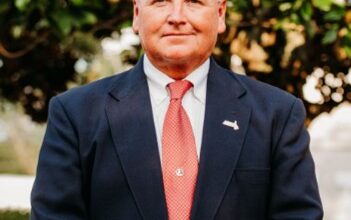Health facility named after mayor and probate judge
Published 2:05 pm Wednesday, August 4, 2021

- Greenville Mayor Dexter McLendon and former Butler County Probate Judge Steve Norman pose for a photo with family and friends during the ribbon cutting for the South Central Alabama Mental Health Center Norman-McLendon Facility
|
Getting your Trinity Audio player ready...
|
On Thursday, July 29, friends and family of Greenville Mayor Dexter McLendon and former Butler County Probate Judge Steve Norman came together to celebrate the opening of a new mental health facility named after them.
The facility, located on Industrial Parkway, would allow jailed individuals the opportunity to get the help they need from medical professionals.
During the dedication address, Alabama Department of Mental Health Commissioner Kim Boswell explained why these facilities are crucial to the communities they serve.
“When people experience their first episode of psychosis, which usually occurs during the late teens to early twenties, a lot of times they will experience delusions and go on to commit misdemeanor crimes,” Boswell said.
“We want to help those people. That’s what this facility is all about, hope. We want to take those people who are suffering from mental illness and give them the help and treatment that they need so that they can re-enter society and become productive.”
Mayor McLendon further expressed this sentiment during his address to the audience.
“We’ve had people in our family, Janice and I, who got involved with some bad stuff and probably had developed a mental illness because of it,” Mayor McLendon said. “We had to send them to a facility to save their life.”
“ A few years later, they pulled my wife out of a pool and saved her life. I don’t know without helping them if my wife would be here today. Our job is to make people better. I believe the more we give others, the more we get in return.”
To close out the ceremony, Judge Steve Norman expressed his thankfulness that people could come together to get the facility built.
“I had the opportunity to visit Hillcrest Hospital in Birmingham to see the type of people served there,” Judge Norman said. “What I saw was regular folks who had been languishing in jails across Alabama, with no treatment at all, just waiting for their fate, which they had no control over. Thank goodness that the state of Alabama decided to do something different so these people can get help.”





